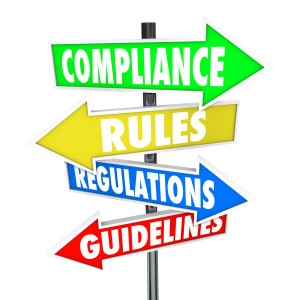— June 30, 2017

rawpixel / Pixabay
There’s a lot of buzz right now about retention and engagement, both of which are strongly linked to onboarding. As Click Boarding says, “it’s during the new hire onboarding process that companies are most vulnerable to losing their newest employees.” That’s a lot of pressure for the worlds’ human resources departments! Luckily, they don’t have to work alone.
These days, more and more business resources are suggesting the notion that HR is in charge of onboarding is a harmful myth. “HR can, and should, play the role of facilitator–but they cannot by themselves make a successful onboarding initiative happen,” says business performance company Kineo.
That’s not to say that you HR folk shouldn’t be significantly involved with onboarding. You still have a role to play “which includes work environment information, computing access, introductions, policies, procedures and paperwork, training, and other administrative matters.” However, after all that is done, new hires need to learn what they’re expected to do every day, how they’ll do it, and what they should do if something goes wrong. Chances are you won’t be able to help them with those things. So, let’s talk about the people who can.
IT
Nowadays, as businesses become increasingly more dependent on technology, good technological help and support is crucial. Most business settings require the use of some kind of computer. They also often require company-wide email, specific technological tools, and key cards to enter the building.
Traditionally, the main role of IT in onboarding is to get everything set up before the employee arrives. (Netflix excels at this.) However, considering how closely technology is related to work, new hires should also receive dedicated ongoing IT support. For at least the first few days, there should be someone in IT specifically assigned to check in with the new hire should they have questions or run into technological snags.
Leadership
Even when HR handles most of the employee onboarding, a new hire’s manager is usually involved at some level. After all, the manager is often aware of if not the instigator of the hiring process. The manager also usually feels some responsibility for helping the new hire to succeed. As helpful as manager involvement is, there are some negative long-term effects when a new hire relies solely on their direct manager during onboarding. When the new hire’s direct manager appears to them as the face of the company, the new hire can become very attached to the manager but not the company. This is a problem if the manager quits. On the other hand, if the new hire doesn’t get along with their manager, they may become disenchanted with the company in general, leading to retention or engagement problems.
A new hire should associate the company with several leaders rather than just one. This means leadership who are over the new hire but to whom the new hire does not directly report should be involved with onboarding when possible. Forbes suggests, “Try bringing people from all levels into the training of a new employee, no matter where he or she sits in the organizational hierarchy.” Think the manager’s manager or the head of the department. You could even go higher up—Alexis Sparks at Think Shift believes that “if employees have the opportunity to meet the CEO, they are more likely to stay with that company.” Sounds like a valuable onboarding practice!
The new hires’ department/coworkers
A new hire isn’t just joining a manager “and the human resources department; they are joining a group of individuals they will be spending half their weekday waking hours with for the next several years,” says LinkedIn.
The new hire’s coworkers should, at the very least, meet the new hire through some kind of organized activity. If one or two of them can be assigned to the new hire as trainers or mentors, then that’s even better! Coworkers who have the same position as the new hire or who will work closely with them will likely have valuable insight into the new hire’s job role.
Other departments
Your new hire isn’t just learning how to do a job; they’re also learning about your company as a whole. Plus, it seems more and more that new hires are expected to be versatile. Why not have them do some work with other departments during onboarding? Cross-training is being hailed as a best practice and was mentioned by Click Board as a unique aspect of Facebook’s boot camp program. It gives new hires an opportunity to learn about how the whole of the company operates. It can also show them potential development or advancement opportunities they can look forward to.
But how do you get others involved?
“If you’re in HR, you also have the responsibility of training others within the organization about the importance of onboarding,” says HR Cloud. Getting the help you need with onboarding will probably fall squarely on you.
How you show other departments that their involvement in onboarding is necessary for success is up to you; it just needs to be done. Pick a strategy that works with your business model and culture and that is based on the knowledge and skills you want to instill in your new hires.
Business & Finance Articles on Business 2 Community
(116)
Report Post









